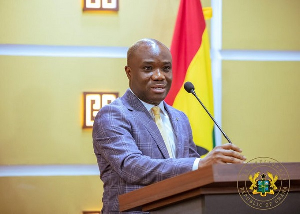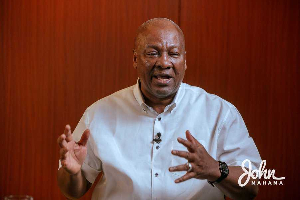Accra, April 16, GNA - Mr Samuel Bannerman-Mensah, Director-General of the Ghana Education Service (GES) on Monday noted that the educational sector was an area where change could be facilitated easily since children grasp what they where taught very quickly in their formative years.
He expressed the observation at the opening of a five-day workshop on Water Sanitation and Hygiene Education aimed at facilitating changes in attitude and behaviour of children and young adults in schools. The project, dubbed; 93Human Value- Based Water Sanitation and Hygiene Education (HVBWSHE)" seeks to promote better understanding of the environment in the context of water, sanitation and hygiene. It is also a component of the Water for African Cities Phase II programme.
The workshop would train teachers who would in turn train classroom teachers, tutors of training colleges and non-formal educators in its implementation. Mr. Bannerman-Mensah expressed concerns about the way people took water for granted and reminded the public that water was essential to life and sanitation was a dignity. He said the Service fully embraced the HVBWSHE concept which was already being implemented in 13 African countries even though the current curricula had made efforts to teach pupils about the importance of water.
The project, which is being implemented in partnership with collaborators including the UN-Habitat, would link schools and colleges of education to their respective communities to enable such communities' to benefit from the programme.
Mrs. Sarah Agyemang Duah, Project Director, said the programme would address challenges of water and sanitation in the cities as well as nurture values such as honesty, integrity, tolerance particularly in children during their formative years. She said such values in children would result in caring and responsible adults in future.
Mrs Agyemang Duah said participants who would be taught how to interpret human values and were expected to train other teachers to reduce water related problems in the country. "Hopefully water bills we pay will be reduced since this programme will help people to use water wisely." Mrs Felicia Boakye-Yiadom, Project Coordinator, said Zabon Zongo in Accra had been selected as a pilot community with main focus on schools.
She said effective implementation of the project demanded that all participants had a basic understanding of water, sanitation and hygiene issues and the challenges in these sectors in the African urban areas. Mrs Boakye-Yiadom said training themes would be conducted in modules and participants would have access to a trainer's manual and teacher support materials, which would assist them to implement training in their respective schedules.
Mr Sagie Naicher, Deputy Director, at the African Institute of Sathya Sai Education an Indian collaborator cautioned that Africa would bear the brunt of the effect of global warming if they did not learn to protect water as an essential part of life. He said water had economic advantages in addition to all its values, citing the water level in the Akosombo Dam as an example of economic impact of water in the country.
Mr Naicher expressed the hope that the outcome of the programme would become tangible and practicable. Mr Minta Aboagye, Water Directorate at the Ministry of Water Resources, Works and Housing, who chaired the function, noted that it was important that children knew the link between resources and demand. 16 April 07
Regional News of Monday, 16 April 2007
Source: GNA
















